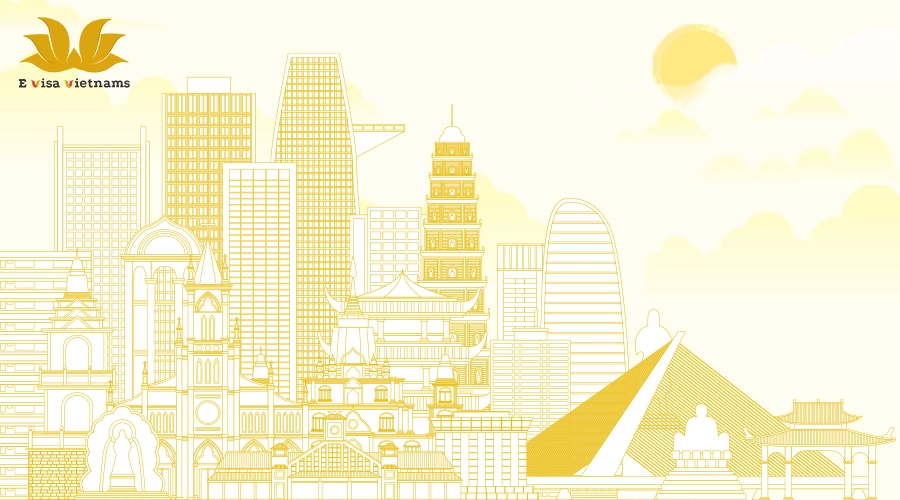short-term vs long-term vietnam evisa 2026 - full comparison guide
 Priyanshu Raghav
Priyanshu Raghav

Vietnam continues to be one of Asia’s most welcoming destinations, blending vibrant culture, beautiful landscapes, and thriving business opportunities. For international visitors planning to travel, work, or stay in Vietnam, understanding the difference between a short-term and long-term eVisa is crucial in 2026.
This guide explains the complete distinction, validity, benefits, eligibility, and a step-by-step process to apply for your Vietnam eVisa efficiently and securely.
Overview of Vietnam eVisa Types
Vietnam offers two main categories of eVisas to foreign nationals—short-term eVisa and long-term eVisa—depending on the purpose and duration of stay. Both visas can be applied for online, eliminating the need to visit an embassy or consulate.
Short-Term Vietnam eVisa Explained
Validity and Duration
A short-term Vietnam eVisa allows travelers to stay in the country for up to 30 days (one month). It is primarily designed for tourism, short business visits, or cultural exploration.
-
Valid for single or multiple entries
-
Cannot be extended beyond the permitted period
-
Available for over 80 nationalities under Vietnam’s eVisa program
Eligible Purposes and Entry Options
Short-term eVisas are ideal for:
-
Tourism or holiday visits
-
Attending business meetings, exhibitions, or trade fairs
-
Visiting friends or relatives in Vietnam
Entry can be made via international airports, land borders, or seaports approved by the Vietnam Immigration Department.
Key Requirements for Short-Term eVisa
Applicants must meet the following conditions:
-
Valid passport with at least six months validity beyond departure date
-
Clear digital passport photo (white background)
-
Completed online application form
-
Proof of travel itinerary or accommodation (if required)
-
Payment of the eVisa processing fee online
Long-Term Vietnam eVisa Explained
Validity and Duration
The long-term Vietnam eVisa is suitable for individuals planning to stay in the country for up to 180 days (six months). It may be extended upon approval by the immigration authorities.
It caters to foreign investors, professionals, students, and business representatives who require extended stays.
Who Can Apply for a Long-Term eVisa
You may qualify for a long-term Vietnam eVisa if you are:
-
An investor or business professional collaborating with a Vietnamese enterprise
-
A foreign employee or expert with a valid work permit or sponsorship
-
A student or participant in academic or cultural exchange programs
-
A dependent family member of a foreign professional living in Vietnam
Key Requirements for Long-Term eVisa
Applicants must provide:
-
Passport valid for at least six months beyond the intended departure
-
Proof of financial stability or sponsorship
-
Letter of invitation or contract from a registered company or educational institution in Vietnam
-
Proof of residence or accommodation details in Vietnam
-
Health insurance (if applicable)
-
Clean criminal record
Comparison: Short-Term vs Long-Term Vietnam eVisa
| Feature | Short-Term eVisa | Long-Term eVisa |
|---|---|---|
| Validity Period | Up to 30 days | Up to 180 days |
| Entries | Single or multiple | Single or multiple |
| Extension | Not allowed | Extendable upon approval |
| Purpose | Tourism, short business trips | Employment, investment, study |
| Processing Time | 3–5 business days | 5–7 business days |
| Eligibility | Most travelers | Professionals, investors, students |
Benefits of Vietnam eVisa in 2026
-
100% online application and approval—no embassy visits
-
Faster processing and transparent system
-
Multiple entry options available
-
Accessible for 80+ nationalities
-
Secure, affordable, and officially recognized by Vietnamese authorities
How to Apply for Vietnam eVisa (Short-Term & Long-Term)
Step-by-Step Application Process
-
Select the type of visa (short-term or long-term).
-
Fill in your personal and travel information accurately.
-
Upload your passport bio-page and digital photo.
-
Pay the processing fee securely online.
-
Receive your eVisa approval letter via email within a few days.
-
Print the eVisa and present it upon arrival in Vietnam.
Processing Time and Fees
-
Short-term eVisa: 3–5 business days
-
Long-term eVisa: 5–7 business days
-
Fees may vary depending on visa type and entry count. All payments are non-refundable once submitted.
Common Limitations and Conditions of Vietnam eVisa
-
The eVisa holder cannot work permanently in Vietnam.
-
Visa extension is only possible for long-term visas.
-
Applicants must exit the country before the visa expires unless extended.
-
Overstaying penalties apply for those exceeding the validity period.
-
Vietnam eVisa is non-transferable and linked to your passport number.
Why Apply for Vietnam eVisa Through a Trusted Service
While it’s possible to apply independently, many travelers face rejections due to incomplete documentation or form errors. Using a trusted visa service like ours ensures:
-
Error-free applications checked by experts
-
Timely processing and updates
-
Dedicated support for any issues with approval or entry
-
Secure online payment and confidentiality
Avoid delays and unnecessary risks — apply for your Vietnam eVisa confidently through our trusted platform today.
Final Thoughts
Whether you plan a short-term vacation or a long-term stay for business or study, Vietnam’s eVisa system in 2026 makes travel convenient and efficient. Understanding your visa type and requirements will help you plan your journey seamlessly and enjoy the vibrant charm of Vietnam with peace of mind.
Apply for your Vietnam eVisa today and explore the beauty, culture, and opportunity that await you.
WRITE YOUR COMMENT
Your email address will not be published. Required fields are marked *